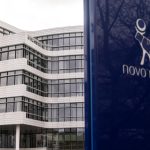
- Clinical Research
- FDA Approval
- Pharmaceuticals
FDA Approves Leucovorin in Autism Speech Breakthrough
5 minute read

FDA-approved leucovorin treatment offers new hope for autism speech development in children as clinical evidence shows promising results
Key Takeaways
- FDA approves leucovorin for autism treatment despite lack of large-scale phase 3 clinical trials, focusing on speech-related deficits associated with autism spectrum disorder.
- Leucovorin market projected to reach $400 million by 2032 with 6.5% annual growth rate, driven by expanded autism treatment applications beyond traditional cancer care.
- Pfizer strikes drug pricing deal with Trump administration for Medicaid program reductions and launches new purchasing platform TrumpRx.gov.
Introduction
The FDA begins approving leucovorin as an autism treatment this week, marking a significant shift for the inexpensive generic drug traditionally used in cancer care. The agency plans to approve prescription leucovorin as a potential treatment for speech-related deficits associated with autism spectrum disorder, despite the absence of large-scale clinical trials.
FDA Commissioner Marty Makary states the agency will update leucovorin’s label to indicate treatment for cerebral folate deficiency, a condition associated with autism. The approval facilitates state Medicaid program coverage for autism treatment, potentially expanding access for thousands of families.
Key Developments
Dr. Richard Frye, a pediatric neurologist, leads research showing leucovorin helps improve speech and behavior in children with autism. The drug works by bypassing blockages in folic acid transport to the brain, addressing cerebral folate deficiency identified by researcher Vincent Ramaekers.
Clinical evidence demonstrates that leucovorin treatment increases brain folate levels and improves communication skills in some autistic children. Frye’s studies show additional benefits including enhanced social function, reduced repetitive behaviors, and stronger attention skills.
The Connor family exemplifies the treatment’s potential impact. Their son Mason, diagnosed with autism at 2½ years old, spoke his first words three days after starting leucovorin treatment at age 3. Mason now prepares to enter mainstream kindergarten at age 5.
Market Impact
The global leucovorin market experiences substantial growth projections, expanding from $250 million in 2025 to an anticipated $400 million by 2032. The 6.5% compound annual growth rate reflects both traditional oncology applications and emerging autism treatment uses.
Regulatory developments create new market dynamics as the FDA’s autism approval and European Medicines Agency streamlined approvals generate growth opportunities. However, increased compliance costs present challenges for smaller pharmaceutical firms entering the market.
The leucovorin calcium injection segment shows particular expansion potential, supported by an aging population and advancing healthcare technologies that improve drug delivery methods and patient compliance.
Strategic Insights
The approval represents a broader trend toward repurposing existing medications for new therapeutic applications. Organizations like Every Cure use artificial intelligence to discover novel uses for established drugs, ensuring patients access potentially beneficial treatments.
Dr. Frye establishes a company to manufacture appropriate leucovorin formulations specifically for children with autism, addressing dosing and application challenges in pediatric populations. The initiative highlights opportunities for specialized pharmaceutical manufacturing in underserved therapeutic areas.
Investment incentives remain limited due to leucovorin’s low cost and generic status, creating prescription challenges for on-label use. Companies must navigate evolving regulatory landscapes while investing in innovative technologies to maintain competitive positions.
Expert Opinions and Data
Dr. Frye emphasizes that leucovorin “could really have a substantial impact on a very good percentage of children with autism,” while cautioning that the drug is not a cure. He advocates for more research to determine accurate dosing and optimal application protocols.
Dr. Marc Siegel stresses the importance of working with knowledgeable physicians, noting that leucovorin requires much higher doses than regular vitamins when treating autism. Medical experts recommend using leucovorin as part of comprehensive treatment plans including behavioral and speech therapy.
Research shows autoantibodies against folate receptor alpha block folic acid transport, potentially contributing to autism development. Diagnostic tests now identify children likely to respond to leucovorin treatment, with Frye developing additional biomarkers to guide therapeutic decisions.
Conclusion
The FDA’s leucovorin approval for autism treatment opens new therapeutic pathways while highlighting the potential of drug repurposing initiatives. The decision creates market opportunities worth hundreds of millions of dollars while addressing urgent medical needs in autism care.
Healthcare providers now possess an additional tool for treating speech-related autism symptoms, though successful implementation requires specialized knowledge and comprehensive treatment approaches. The development demonstrates how established medications can address previously untreated conditions through innovative research and regulatory flexibility.








